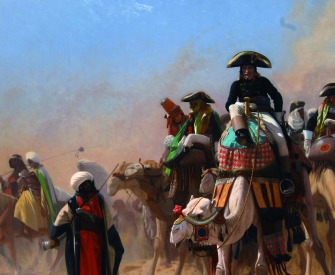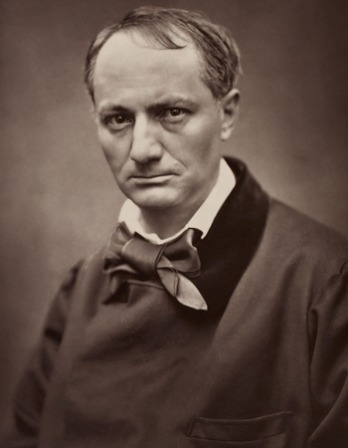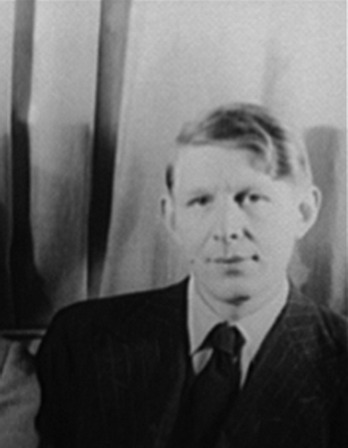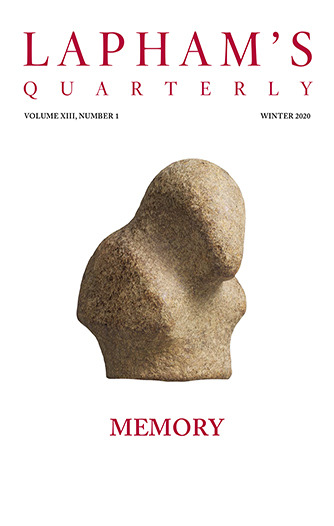We must consider that we shall be a city upon a hill. The eyes of all people are upon us, so that if we deal falsely with our God in this work we have undertaken, and so cause Him to withdraw His present help from us, we shall be made a story and a byword through the world.
—John Winthrop, 1630The Scene Almost Staggers
H.L. Mencken leaves his heart in San Francisco.
What fetched me instantly—and thousands of other newcomers with me—was the subtle but unmistakable sense of escape from the United States, the feeling that here at last was an American city that somehow managed to hold itself above pollution by the national philistinism and craze for standardization, the appalling progress of 100 percent Americanism, the sordid and pathetic dreams of unimaginative, timorous, and inferior men.
The East, it seems to me, is gone, and perhaps for good. All the towns along the seaboard are now as alike as so many soldiers in a row. They think alike. They hope and fear alike. They smell alike. They begin to look alike. What one says all the others say. What one does all the others do. It is as if some gigantic and relentless force labored to crush all personality, all distinction, all tang and savor out of them. They sink to the spiritual and intellectual level of villages—fat, lethargic, and degraded. Their aspirations are the aspirations of curb brokers, greengrocers, and honorary pallbearers. The living hope of their typical citizen is to die respected by bank cashiers, Young Men’s Christian Association secretaries, and policemen. They are ironed out, disemboweled, denatured, dephlogisticated, salted down, boiled, baked, dried in a kiln.
Think of Washington: a hundred thousand miserable botches of ninth-rate clerks, all groveling at the feet of such puerile caricatures as Daniels, Burleson, and Palmer. Baltimore: mile after mile of identical houses, all inhabited by persons who regard Douglas Fairbanks as a greater man than Beethoven. (What zoologist, without a blood count and a lumbar puncture, could distinguish one Baltimorean from another?) Philadelphia: an intellectual and cultural slum. Newark: a worse one. New York: a wholesale district with an annex for entertaining the visiting trade. New Haven and Hartford: blanks. Boston: a potter’s field, a dissecting room. Mental decay in all its forms, but one symptom there is in common: the uneasy fear of ideas, the hot yearning to be correct at all costs, the thirst to be well esteemed by cads.
What is it that lifts San Francisco out of that wallow? I am not all sure. It may be something intrinsic—specifically, something ethnological. The stock out there differs visibly from any eastern stock that I know. It is not that half of the people are actual foreigners, for that is also true of New York and nearly true of Baltimore; it is that the native born belong to a distinct strain, mentally and physically—that the independence and enterprise of the pioneers are still in them—that their blood is still running hot and clear. Above all, remember the recentness of this heritage. They are not the children of men who were bold and daring in the seventeenth century, but the children of men who were bold and daring in the midnineteenth.
I met a man in the Bohemian Club who began to tell me casually of his grandmother. This lady, an Irishwoman of good birth, came to California from Ireland in 1849, by way of Panama. Imagine the journey: the long sea voyage, the infernal struggle across the Isthmus, the worse trip up the coast, the trek inland. Well, she brought a piano with her!—got it aboard ship in Ireland, guarded it all the way to Panama, dragged it through the jungle, then shipped it again, and finally packed it to her home in the hills! I dare say many of us could find such grandmothers, going back far enough. But in 1849—seventy years ago? Our Baltimore grandmothers in 1849 were sitting snugly by the new Latrobe stoves, reading Dombey and Son and knitting socks.
Mere geography helps, with a polite bow to meteorology. The climate, to an easterner, is almost too invigorating. The heat of the Sacramento Valley sucks in such cold breezes through the Golden Gate that they overstimulate like raw alcohol. An Arctic current comes down the coast, and the Pacific is so chilly that sea bathing is almost impossible, even in midsummer. Coming off this vast desert of ice water, the San Francisco winds tickle and sting. One arises in the morning with a gigantic sense of fitness—a feeling of superb well-being. Looking out at the clear yellow sunlight, one is almost tempted to crow like a rooster. It is a land of magnificent mornings.
But of somewhat less magnificent nights, at least to one from the East. The thrill of it leads to overestimates. One suffers from the optimism of a man full of champagne. Toward evening, perhaps, a clammy fog rolls in, and one begins to feel a sudden letting down. The San Franciscans have learned how to bear it. They are stupendously alive while they are in motion, but they knock off betimes. The town is rich in loafing places: restaurants, theaters, parks. No one seems to work very hard. The desperate, consuming industry of the East is quite unknown. One could not imagine a sweatshop in the town. Puffs of Oriental air come with the fog. There is nothing European about the way life is lived; the color is all Asiatic.
Now imagine the scene. A peninsula with the Pacific on one side of it and the huge bay on the other—a peninsula bumpy with bold, precipitous hills, some of them nearly a thousand feet high. The San Franciscans work in the valleys and live on the hills. Cable cars haul them up in a few minutes, or they make the voyage in astonishing taxicabs—taxicabs that seem capable of running up the side of a house. Monument Street, east of the monument, is nothing; here are hills that are genuinely steep. Coming down on foot one hugs the houses. Going up on foot—but I had better confine myself to what I know.
Once up, the scene almost staggers. It is incomparably more beautiful than any view along the Grand Corniche; from the Twin Peaks, San Francisco makes Monaco seem tawdry and trivial. Ahead is the wide sweep of the bay, with the two great shoulders of the Golden Gate running down. Behind is the long curtain of California mountains. And below is the town itself—great splashes of white, pink, and yellow houses climbing the lesser hills—houses half concealed in brilliant green—houses often sprawling and ramshackle but nevertheless grouping themselves into lovely pictures, strange and charming. No other American town looks like that. It is a picture out of the Orient—dazzling, exotic, and curiously romantic.

H.L. Mencken
From “San Francisco: A Memory.” As a reporter and columnist for the Baltimore Sun from 1906 until his death at the age of seventy-five in 1956, Mencken decried the complacency of the middle class, or “booboisie,” while working to promote the emergent work of Sinclair Lewis and Theodore Dreiser. Although known primarily as a satirist, he also produced the important philological work The American Language.




